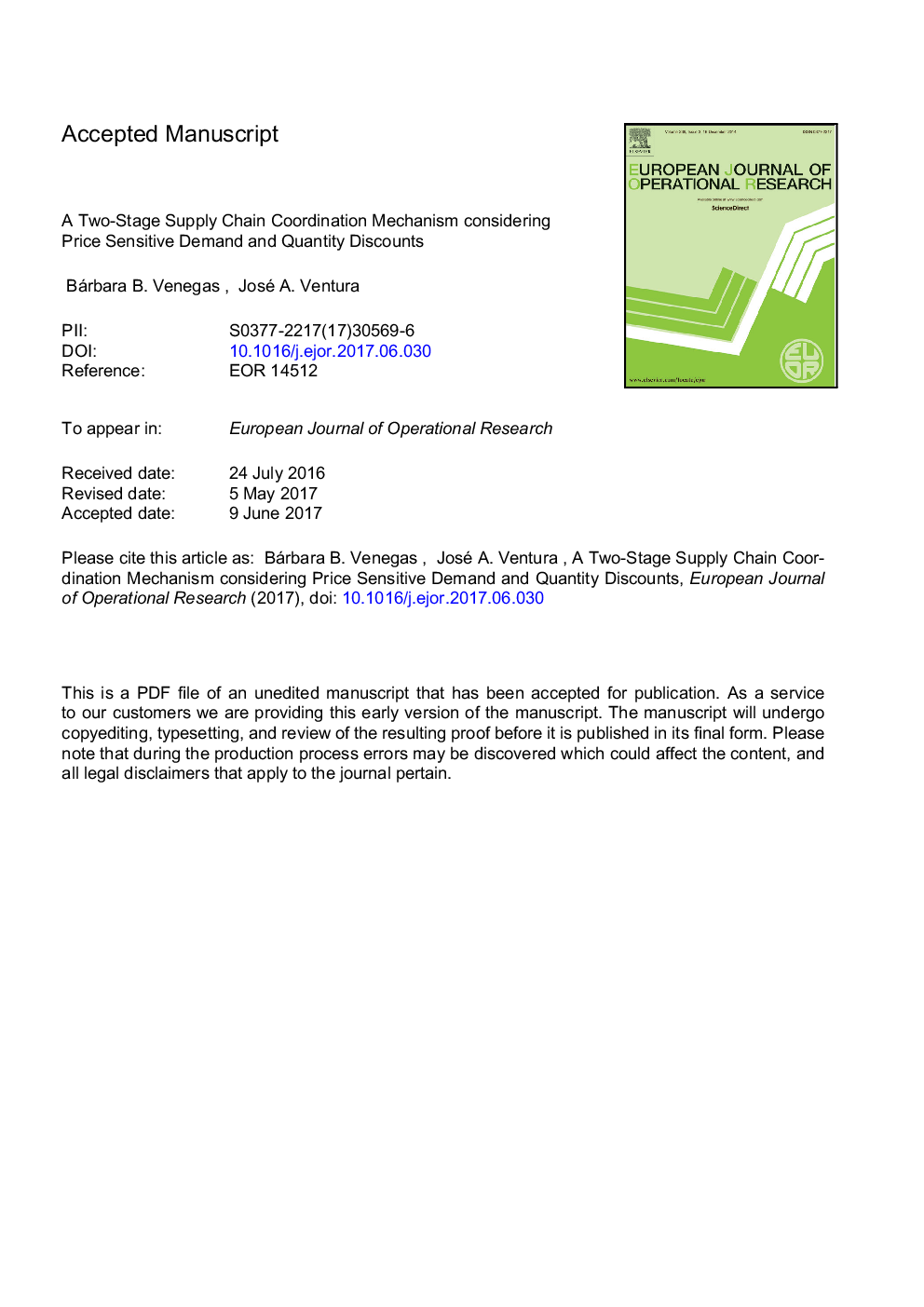| Article ID | Journal | Published Year | Pages | File Type |
|---|---|---|---|---|
| 4959414 | European Journal of Operational Research | 2018 | 30 Pages |
Abstract
This paper explores the coordination between a supplier and a buyer within a decentralized supply chain, through the use of quantity discounts in a game theoretic model. Within this model, the players face inventory and pricing decisions. We propose both cooperative and non-cooperative approaches considering that the product traded experiences a price sensitive demand. In the first case, we study the dynamics of the game from the supplier's side as the leader in the negotiation obtaining a Stackelberg equilibrium, and then show how the payoff of this player could still improve from this point. In the second case, a cooperative model is formulated, where decisions are taken simultaneously, emulating a centralized firm, showing the benefits of the cooperation between the players. We further formulate a pricing game, where the buyer is allowed to set different prices to the final customer as a reaction to the supplier's discount decisions. For the latter we investigate the difference between feasibility of implementing a retail discount given a current coordination mechanism and without it. Finally the implications of transportation costs are analyzed in the quantity discount schedule. Our findings are illustrated with a numerical example showing the difference in the players' payoff in each case and the optimal strategies, comparing in each case our results with existing work.
Related Topics
Physical Sciences and Engineering
Computer Science
Computer Science (General)
Authors
Bárbara B. Venegas, José A. Ventura,
